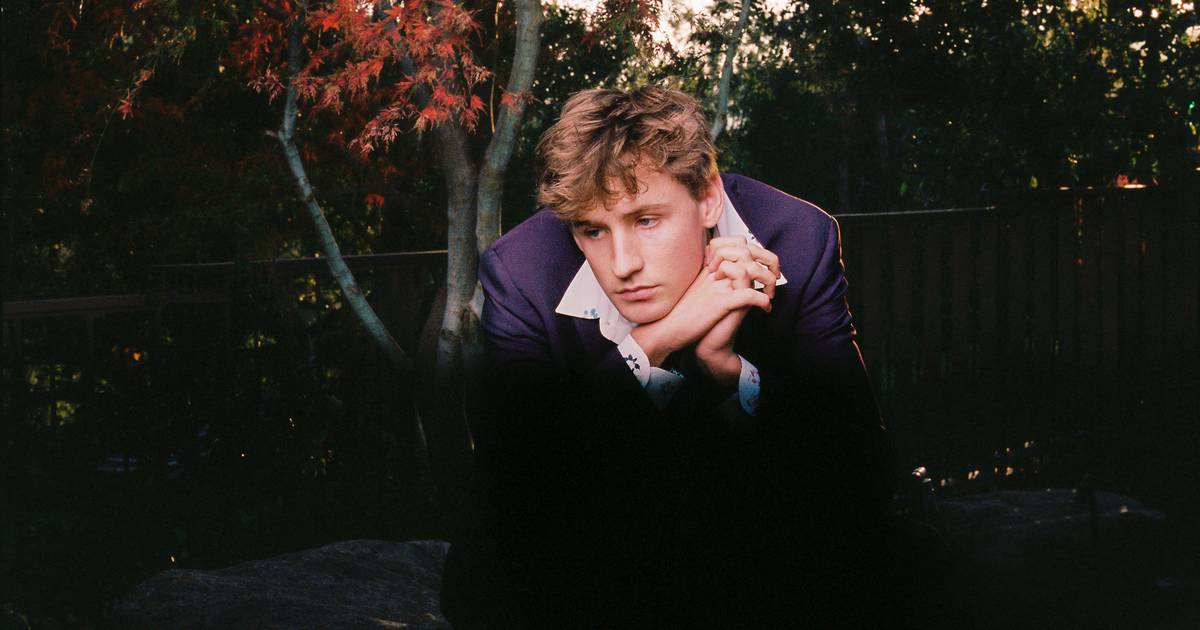From his recent performance at USC’s Springfest to the launch of an EP, musician Magnus Ferrell has been actively engaged in various artistic endeavors. Having previously showcased his talent at renowned venues like The Troubadour and The Greek Theatre, Ferrell is set to grace the stage once again for an EP release event at the Moroccan Lounge this Wednesday. Titled “Hasn’t Even Started,” Ferrell’s EP comprises six tracks, including hit singles such as “Life or Death,” “Missed Your Chance,” and “Don’t Talk to Me Like That.” Apart from his burgeoning music career, the 19-year-old artist is also pursuing a degree in acting as a sophomore at USC.
In a conversation with Annenberg Media, Ferrell delved into the inspiration behind “Life or Death” and its connection to his broader body of work. The interview transcript has been edited for clarity.
Please note: This interview was conducted in February before the official release of “Life or Death.”
Introduction and Background:
Magnus Ferrell, a sophomore at USC majoring in acting with a focus on theater, shared insights into his musical journey and aspirations. Hailing from Los Angeles, Ferrell described his musical pursuits, emphasizing his passion for songwriting and vocal performance. His ultimate ambition is to establish a successful career in music and sustain himself solely through his artistic endeavors.
Musical Evolution and Influences:
Reflecting on his musical evolution, Ferrell recounted his early exposure to music through piano lessons at the age of five, progressing to jazz and songwriting by age 13. Drawing inspiration from jazz luminaries like Miles Davis and Oscar Peterson, Ferrell’s musical palette expanded to encompass indie-pop and alternative genres, with recent influences including artists like Bruno Mars and Harry Styles. His jazz background equipped him with the theoretical foundation to craft intricate melodies and harmonies, enriching his musical repertoire.
Creative Process and Inspirations:
During the pandemic-induced downtime, Ferrell immersed himself in music production, experimenting with new sounds and arrangements. He highlighted the therapeutic nature of songwriting, viewing it as a means of processing emotions and experiences. Collaborating with his roommate, Gabe Yaron, a seasoned producer, Ferrell found a creative synergy that fueled their collaborative projects. The duo’s organic approach to music creation involved spontaneous moments of inspiration, such as melodies conceived while doing household chores.
Artistic Expression and Authenticity:
Ferrell emphasized the importance of authenticity in his music, eschewing trends in favor of creating music that resonates with his personal experiences and emotions. He shared anecdotes of pivotal moments in his musical journey, such as breakthroughs in jazz theory and the evolution of his sound to reflect his true artistic vision. By staying true to himself and crafting music that aligns with his artistic sensibilities, Ferrell aims to forge a genuine connection with his audience.
Future Plans and Artistic Growth:
Looking ahead, Ferrell expressed his goal of releasing an extensive body of work in the coming year, showcasing a diverse range of musical styles and themes. While his recent releases have exuded upbeat and R&B influences, Ferrell hinted at forthcoming projects that delve into more introspective and emotionally charged territory. Balancing honesty and vulnerability in his songwriting, Ferrell seeks to captivate listeners with narratives that capture the essence of youth and self-discovery.
Artistic Vision and Aspirations:
Fueled by a desire to command larger stages and reach broader audiences, Ferrell shared his aspirations of headlining major music festivals and delivering electrifying live performances. His ultimate goal is to evoke genuine emotional responses from his listeners, translating his own experiences into compelling musical narratives that resonate with diverse audiences. Embracing the transformative power of music, Ferrell aims to create a deeply immersive and emotionally resonant musical experience for his fans.
Closing Thoughts and Musical Philosophy:
In conclusion, Ferrell underscored the dual fulfillment he derives from music—both as a personal outlet for self-expression and as a medium for connecting with and impacting others. By channeling his raw emotions and life experiences into his music, Ferrell seeks to create a shared emotional journey with his audience, eliciting a range of feelings from joy to introspection. His artistic philosophy revolves around authenticity, emotional honesty, and the transcendent power of music to forge meaningful connections with listeners.
Host Sign-off:
This segment featured on SC Unplugged offers an intimate glimpse into the creative process, inspirations, and aspirations of Magnus Ferrell, an emerging talent within the USC music scene.
